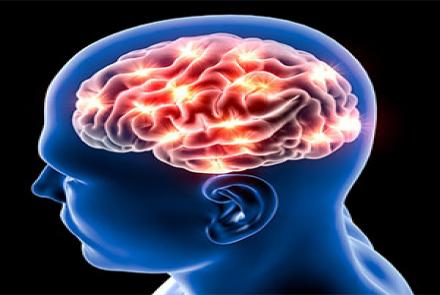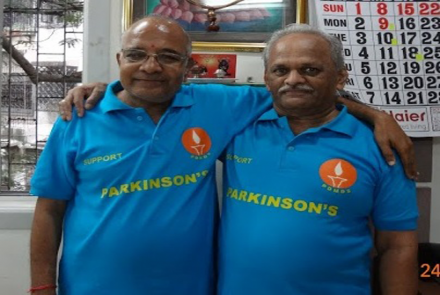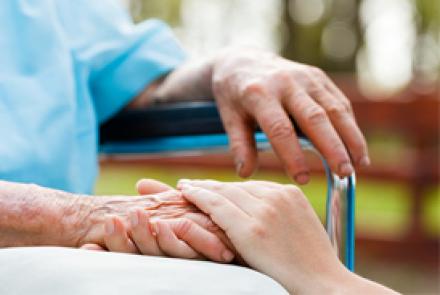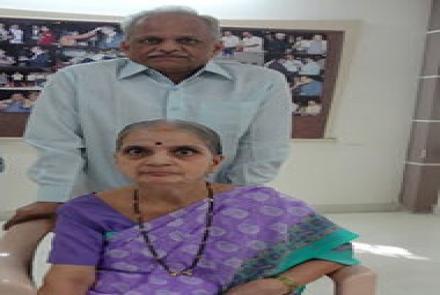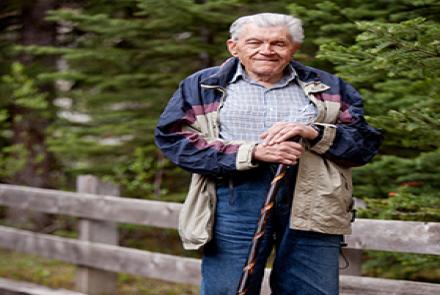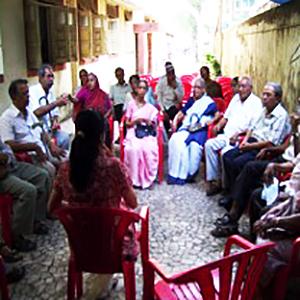
Living with Parkinson’s can be difficult most of the time but you can help change that by improving your lifestyle. Here are 12 tips on managing the middle stage of Parkinson's Disease how.
1. Stay Healthy
Staying healthy is extremely important, as good health is the key to a better and easier life with Parkinson’s. Here are some ways in which you can stay healthy:
2. Exercise
Exercising helps to release happy hormones called ‘endorphins’. Endorphins not only help to get you in a good mood, but also help to keep you healthy and active. You must exercise for at least 30 minutes to one hour every day. Exercise may include walking, physiotherapy, yoga, dancing; working out at the gym and anything else that keeps you active.
3. Maintain Healthy Eating Habits
You must eat a healthy and well balanced diet, making sure to include all the nutrients like proteins, carbohydrates, vitamins, minerals, fiber, calcium and fats in your meal. Eating your meals on time is also important.
4. Sleep
The brain recharges its dopamine overnight. Most people find that a good night’s sleep leads to a good day. For these reasons it is important to get a good night’s sleep.
5. Regular Health Check-Ups with the Doctor
Parkinson’s is a progressive condition and the symptoms of Parkinson’s are likely to change over time. Hence it is important that you visit your doctor every six months to assess any developments that may have occurred in your symptoms. In addition, getting your overall health checked regularly is also important.
6. Socializing
You must make a special effort to go out and socialize, meet and interact with people. There are many activities that are enjoyed more when we do them with other people. Sometimes due to Parkinson’s, you might feel that you can no longer enjoy these activities with other people which may cause you to feel isolated and lonely. However, just because you have Parkinson’s, does not mean that you must refrain from engaging in such activities. Staying connected with others will keep you occupied and active, distract you from the immediate problems related to the condition, and decrease feelings of loneliness.At times people with Parkinson’s don’t enjoy socializing because they feel that their family members or friends who don’t have Parkinson’s do not understand what they are going through. If you wish to meet other people who have Parkinson’s and share your experiences with them as well as learn about their ways of coping with Parkinson’s, you can join a support group for people with Parkinson’s
7. Communication
Dopamine plays an important role in the working of the muscles of the body including the face and throat muscles. A lack of dopamine production in the brain can cause difficulties in speech, volume of voice and facial expressions. Due to this deficiency, communicating becomes difficult for people with Parkinson’s. Although being unable to communicate well with others or being misunderstood and having to repeat yourself is very frustrating, it is important that you remain patient with yourself. Keep practicing some facial exercises and voice exercises to help you to communicate well.
8. Maintaining Relationships after Parkinson’s
Having Parkinson’s may affect your relationship with family members and with others who are close to you. You may perceive their behavior and/or commitment towards you to be different after your diagnosis. You may feel that they don’t understand what you’re going through or aren’t helping you enough or that they are helping you or interfering too much.
Sometimes you want to vent your anger and frustration and the only people around are your family members. This may lead to arguments and fights between you and your loved ones. But you need to spare a moment to think about how your diagnosis of Parkinson’s has affected your loved ones. It may not have occurred to you, but your family members could be experiencing the same emotions that you are; they may be as scared and unsure and angry about your Parkinson’s as you are.
Even though the illness has only afflicted you and you are the only one experiencing the symptoms, you are not the only person in your family living with the condition. Your family members too are experiencing and living the condition with you. Therefore, it is important to be understanding and patient with each other. One way to protect your relationships with your family members is to communicate your feelings to them and talk about the problems you are facing. Communicating with your loved ones helps to reduce misunderstandings. Moreover, together you all may find different ways of dealing with the problems you may be facing.
9. Dealing with Emotions
People with Parkinson’s may experience extreme sadness of mood and anxiety. This could be due to the Parkinson’s itself or due to the effects of the medication. It is important to acknowledge these emotions and to get the required help.
Read how to handle emotions of Depression and Anxiety with Parkinson's Disease.
10. Leisure Activities
After being diagnosed with a chronic condition like Parkinson’s, many people stop doing things that they love or that make them happy. However, it is important to remember that there is no reason to give up the things that we love because of Parkinson’s. Engaging in these activities will help to improve your mood and to keep you active as well as help you take control of your Parkinson’s.
It is not necessary to stop Traveling. Read here: Tips on Travelling with Parkinson's Disease.
11. Carrying out Activities of Daily Living
At times, due to the symptoms of Parkinson’s, carrying out daily activities becomes difficult. If you have difficulty doing these simple things in public, it might be cause for great embarrassment which may make you want to avoid social situations completely. However, that is not the solution to such problems. If you face any difficulty while you are out, you must learn from that experience and think about ways to tackle such problems in the future. Remember that an important way for people to see what Parkinson’s is, if they see and interact with people who have Parkinson’s.
Here are a few common problems that people with Parkinson’s face in carrying out their daily activities along with some simple techniques to enable you to conduct these activities more easily.
- Dexterity refers our ability to perform task with our hands and can include tasks like writing, eating with a spoon, holding your plate, buttoning your shirt, tying your shoe laces, taking out money from your wallet etc. Due to tremors or stiffness, carrying out such activities might get difficult. To improve grip, one can use a pen or a spoon with a thick handle; one can use Velcro shoes instead of ones with laces, buttons on the shirt can be replaced by Velcro and pants with elastic can be worn instead of those with buttons; a larger wallet can be used to facilitate handling it in public etc.
- Fatigue: People with Parkinson’s are likely to experience excessive fatigue during the day. This is because they have to put in more effort to get simple tasks done. In addition to this, some people with Parkinson’s also have cognitive difficulties, which makes tasks like planning, remembering, following complex instructions etc. difficult for them. The best way to overcome these problems is to lead a healthy lifestyle. That includes regular exercise, sleep, eating healthy and having medications regularly and on time.
12. Being a Person with Parkinson’s (PwP) in the community
Interaction with others
Often it is seen that due to Parkinson’s, people affected tend to reduce socializing and outings; you may feel embarrassed by your symptoms or you may feel that you have no friends who are going through the same this as you are. But it is important to remember that you must not give up doing things that you love because you may feel conscious or afraid that people are looking at you. The best way to overcome all these reservations is to face them.
Most people may notice your symptoms but not comment on them. On the other hand there may be some people who might notice your symptoms and ask you about them. What is of importance here is that if people are staring at you, you shouldn’t think it is because they want to ridicule you or that they have bad intentions; in fact they’re probably staring at you because they are unaware of what these symptoms are they can see or they might know someone who has similar symptoms, or they might just be curious.You must learn to think of the situation in a positive way. Instead of getting upset and feeling embarrassed, be honest about having Parkinson’s and take this as an opportunity to enlighten the other person about Parkinson’s. This technique will not only help in not letting Parkinson’s take charge of your life, but will also help you to spread awareness about Parkinson’s.Remember that the more easily and openly you accept your condition, the easier it will be for you to deal with such situations positively.Moreover, you must try to see the benefits of meeting other people in a situation similar to yours. Joining a support group will give you such an opportunity. It will give you a chance to gain insight about how to cope with such issues and various other aspects of your life.
Accepting or Rejecting Help from others
There may be times when you are faced with situations where people are unable to understand what you are going through or what Parkinson’s is and they may respond in a way that is unsatisfactory to you. This might upset and frustrate you. You should understand and remember that Parkinson’s is still a lesser known illness in India. Therefore, it is not possible for someone who does not have Parkinson’s to understand what you are going through. Having such an understanding in mind while explaining to people what you are going through, will help to reduce your frustrationThere may be times when people would offer to help you or would go ahead and help you without asking you or there may be times when you ask for help. There may also be certain times when you don’t require the help or may like to do the task on your own. For such times, you must learn a good way of accepting or rejecting help. The most important thing for you is to communicate when you need the help and when you don’t. Unless you communicate to others about whether you need help or not, they will not know. Always remember that while asking for help or rejecting help offered, you must be polite.




